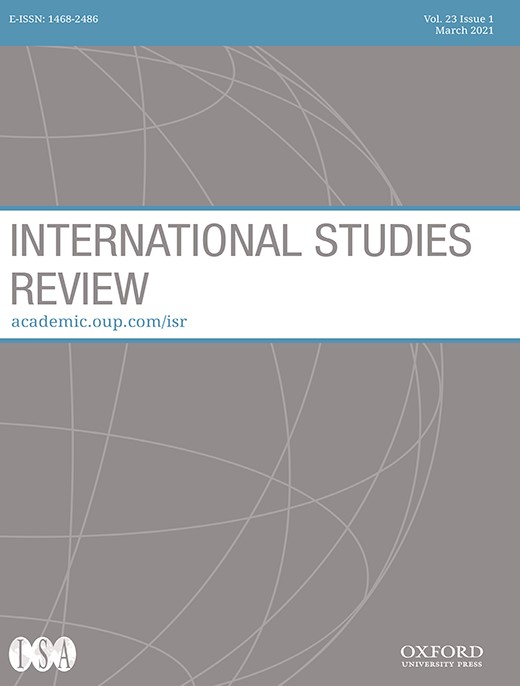-
Views
-
Cite
Cite
Richard Maher, International Relations Theory and the Future of European Integration, International Studies Review, Volume 23, Issue 1, March 2021, Pages 89–114, https://doi.org/10.1093/isr/viaa010
Close - Share Icon Share
Abstract
What are the prospects and likely future direction of European integration? Will it be marked by resilience and perhaps even deepening integration among European Union (EU) member states, or will it encounter further instability that could lead to fragmentation and disintegration? The answers to these questions are currently unknown but are important not just for the citizens and countries of the EU but for world politics more broadly. Scholars and other observers have advanced a range of arguments to answer these questions, many of which are derived from the three mainstream theoretical paradigms of contemporary International Relations (IR): realism, liberalism, and constructivism. These arguments reveal disagreement both within and across paradigms over the question of the EU's future. While it is commonly thought that realists are generally pessimistic and liberals and constructivists broadly optimistic regarding the EU's future prospects, it is possible to identify arguments derived from liberal IR theory that the EU faces possibly fatal challenges and realists who see powerful reasons for the EU to stick together, while there are constructivists who think it can go either way. There are thus six basic positions on the future of the EU derived from IR theory. This paper identifies and evaluates a broad range of causal forces that will affect the future of European integration. The paper concludes by discussing the enduring role and value of theory in the study of international relations.





